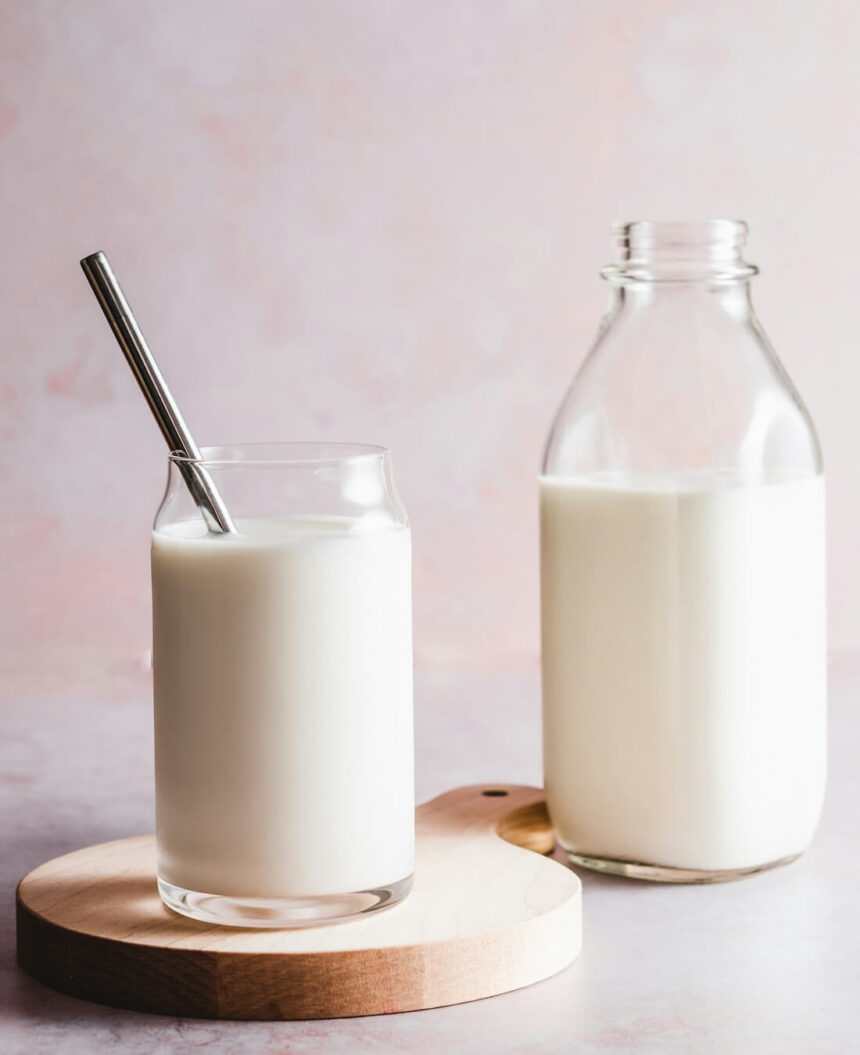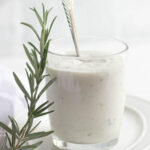Are you thinking of going vegetarian? If so, you might think you just have to exclude animal products and increase your veggie intake.
But there are actually several different types of vegetarianism, and lacto vegetarianism is one of them. What exactly is it, and is it better for you than other vegetarian lifestyles? Let’s find out what the lacto vegetarian diet is all about.
Who Is a Vegetarian?
Before we discuss lacto vegetarianism, let’s first clarify vegetarianism in general. According to the Vegetarian Society, “A vegetarian is someone who lives on a diet of grains, pulses, legumes, nuts, seeds, vegetables, fruits, fungi, algae, yeast and/or some other non-animal-based foods (e.g., salt) with, or without dairy products, honey, and/or eggs.”
They continue saying, “A vegetarian does not eat foods that consist of or have been produced with the aid of products consisting of or created from, any part of the body of a living or dead animal. This includes meat, poultry, fish, shellfish, insects…”
So, it’s clear that a vegetarian diet excludes specific animal-derived foods. However, it does make room for some animal-based foods, like eggs, honey, and dairy products.
Different Types of Vegetarian Diets
There are four main types of vegetarianism. What differentiates them is whether or not they include animal-based products and, if so, which ones.
Vegan
Vegans exclude all animal products, including dairy, eggs, and honey.
Ovo-Vegetarian
Ovo-vegetarians include eggs in their diet but avoid all other animal-based products.
Lacto-Ovo-Vegetarian
Lacto-ovo-vegetarians include both eggs and dairy products in their diet.
Lacto Vegetarian
Lacto vegetarian only adds dairy-based products into their diet but excludes eggs and other animal-based foods.
Dairy Products Allowed in Lacto Vegetarian Diet
From the brief definition above, it’s clear that lacto vegetarians get to enjoy a vegan diet, plus dairy products. So, what kind of dairy products does this lifestyle include?
- Cow milk
- Cow cheese
- Butter
- Ghee
- Sheep milk
- Sheep cheese
- Goat cheese
- Goat milk
- Donkey milk
- Products, derived from these foods, such as yogurt, kefir, ice cream, and creamers
Benefits of a Lacto Vegetarian Diet
Vegetarian diets can be a very healthy way to live and obtain all the necessary nutrients you need. However, since each type of vegetarianism excludes specific food groups, it’s important to plan the diet carefully to avoid deficiencies. This goes for lacto vegetarians, too.
According to WebMD, there are four main nutrients that vegetarians are at risk of deficient in: Vitamin B12, calcium, iron, and zinc.
Lacto Vegetarian Diet and Vitamin B12
According to the National Institutes of Health (NIH), “Vitamin B12 is naturally found in animal products, including fish, meat, poultry, eggs, milk and milk products.”
Therefore, strict vegans run the risk of being Vitamin B12 deficient, which can have some pretty serious ramifications for overall health and wellness.
However, lacto vegetarians can consume dairy and avoid a Vitamin B12 deficiency.
Lacto Vegetarian Diet and Calcium
Calcium is a necessary mineral for healthy bones and teeth. But it’s also crucial for heart and muscle health, hormones, and nerve transmission. Therefore, it’s crucial that all vegetarians, including lacto vegetarians, plan their diets to include healthy sources of calcium.
Luckily, many vegetable and dairy foods are high in calcium. You can get calcium in yogurt, kefir, raw milk, and cheese. It’s also available in kale, okra, bok choy, broccoli, watercress, and almonds.
Lacto-vegetarians have lots of choices when it comes to calcium-rich foods.
Lacto Vegetarian Diet and Iron
While there are trace amounts of iron in dairy, it’s definitely not enough iron for your body’s needs. And iron is one mineral you don’t want to be without. Having an iron deficiency can lead to anemia, weakness, fatigue, poor concentration, cold hands and feet, headaches, and many more symptoms.
Women are especially at risk for iron deficiency since they lose significant amounts of iron in their menstrual cycles each month.
So, if dairy foods don’t provide enough iron, where can lacto vegetarians find good sources of iron? Dr. Axe says spirulina, dark chocolate, spinach, black beans, pistachios, and raisins can all provide iron.
Lacto Vegetarian Diet and Zinc
Along with iron, zinc is another important mineral that vegetarians risk being deficient in. Low levels of zinc can lead to hormonal imbalance in women, which in turn can lead to reproductive and endocrine problems.
Zinc deficiency can also lead to digestive problems, including diarrhea and a leaky gut, weakened immunity, autoimmune disease, allergies, and many other health problems.
Fortunately, lacto vegetarians have many zinc-rich foods to choose from, for a tasty and varied diet. Top picks include pumpkin seeds, chickpeas, cocoa powder, cashews, kefir, yogurt, mushrooms, and spinach.
Is Lacto Vegetarianism Better Than Other Vegetarian Diets?
With smart meal planning, the lacto-vegetarian diet helps individuals avoid deficiencies in key nutrients, like Vitamin B12, calcium, iron, and zinc. And there’s another reason why including dairy in your vegetarian diet has its benefits.
According to Nutrition and Regulatory Specialist, Charlotte Ligouri, dairy is a good source of protein since it contains all non-essential and essential amino acids.
Ligouri advises that “If you are a vegetarian, it’s a good idea to choose high-quality proteins such as dairy or soy, and enjoy a range of protein-rich plant-based foods, such as whole grains, legumes, nuts, and seeds, throughout the day.”
Therefore, dairy, along with other plant-based foods, can provide protein for your body’s needs.
Does Dairy Mess up Hormones?
Even though dairy provides lots of nutrition, and lets you enjoy yummy foods like ice cream and grilled cheese sandwiches, women need to be careful with dairy consumption.
According to a functional nutritionist and women’s hormone expert, Alisa Vitti, dairy can hurt your hormones. Viti teaches that dairy can create inflammation and interfere with fertility. What’s more, it can throw off your body’s natural hormone production and even deplete your magnesium levels.
Therefore, if you’re a woman following a lacto vegetarian, it may be wise to seek out high-quality sources of dairy and to pay attention to your reproductive health, just to be sure dairy isn’t causing any issues for you.
Is lacto vegetarisim the wisest type of vegetarianism? It certainly can make it very easy for vegetarians to obtain all the key nutrients they need.








